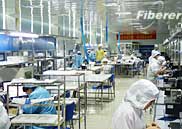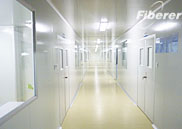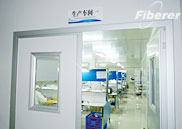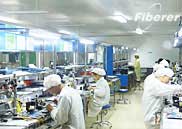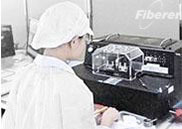|
The optical switch is the core device of optical switching, but also one of the main factors to affect the optical performance of the network. The realization of optical networking network is entirely dependent on the development of such devices and system technologies as optical switch, optical filter, a new generation of EDFA, DWDM technology and so on. Optical switch, as the key device to a new generation of all-optical networking network devices, is mainly used to achieve light level routing, wavelength selective optical cross-connect and self-healing protection.
In terms of the current development of optical switches, according to the transmission medium of the switch, the switches can be classified as free space and waveguide-type optical switch; according to the switching mechanism, the switches can be classified as mechanical optical switch, thermo-optical switch and optical switch. Mechanical optical switch includes the micro-mechanical optical switch based on a new type micro-mechanical technology.
our Fiber Optical MEMS switches type common as follow:
850 nm Fiber Optical MEMS switch
1310 nm Fiber Optical MEMS switches
1550 nm Fiber Optical MEMS switches
1260~1620 nm Fiber Optical MEMS switches
1x2 2x2 1x4 1x8 Fiber Optical MEMS switches.
please select the specification of mems optical switch products as follow:
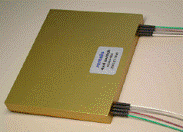 
|
|
Micro-mechanical optical switches production has made use of MEMS technology. Micro-mechanical optical switch is small size, easy to large-scale integration, and low insertion loss, low polarization sensitivity and high extinction ratio and is likely to become the best choice of the optical switch in the optical network. In addition, the use of the low-dimensional semiconductor structure the laser nonlinear effects in the preparation of the optical switch logic devices, optical window vertically integrated surface conducive to large-scale integrated parallel operation, having a set of optical input, output, processing functions of a variety of optical and electrical logic switching one of the intelligent chip, developed a logic function light switch need integrated intelligent optical information system network and exchange. Because the MEMS optical switch has nothing to do with the contents and format of the optical signal wavelength, protocol, modulation, polarization, direction of transmission, but also its loss and scalability are better than the other types, which is consistent with the required transparency and scalability trend of the development of optical networks in future, it is possible to become mainstream in the core optical switching devices,
|
|
One of the important applications of MEMS technology is making optical switch matrices. The use of micro-mirror can achieve ON and OFF function by upper and lower folding manner, the left and right moving manner or rotary manner. Optical switch made by MEMS technology is integrated the mechanical structure, micro-Actuator and shimmer components together on the same substrate, structure compact, light weight, easy to expand. Compared with mechanical optical switches and waveguide-type optical switch, it has very good performances, such as: low insertion loss, crosstalk, high extinction ratio, good repeatability, response speed is moderate, independent of wavelength, polarization, rate and modulation scheme, life than mechanical optical switches and waveguide-type optical switch long, high reliability, and can be expanded into a large-scale optical cross-connect switch matrix.
Fiber Optical MEMS switches has 2 kinds of structure: 2D (two-dimensional) digital and 3D (three-dimensional) analog. 2D structure, the micro mirror and input output fibers are in the same plane, through the electrostatic actuator making the micro-mirror upright and fallen or make the micro-mirror in the optical path and out the optical path as a "seesaw" state to achieve "ON" and "OFF", as shown in Picture 1. So 2D structure is also known as the digital type. The 2D optical switch of one N 'N needs N2pcs micro mirrors. The advantage of 2D structure is easy to control. The shortage is the quantity of switching ports can not be too many due to the limit of optical path and micro-mirror area. 3D structure, all micro-mirrors are placed on 2 opposed planes, through changing the different positions of each micro-mirror to achieve optical paths switching, as shown in Picture 2. The 3D optical switch of one NN needs only 2Npcs micro-mirrors, but each micro-mirror would need at least N pcs movable position which can be precisely controlled, so the 3D structure is also known as the analog type. Contrary to the 2D structure, the advantage of 3D structure is the quantity of switching ports can be too many, switching capacity of thousands of ports. The shortage is the of the port number, the disadvantage is the control mechanism and drive structure are complex and the cost on the control part is very high..
The advantages of Fiber Optical MEMS switches is reflected in several aspects as performance, functionality, scale, reliability and cost etc. In terms of performance, main indicators are such as insertion loss, wavelength flatness, PDL and crosstalk. MEMS technologys achieved performance can be compared with other technologies highest performance. Such as 2 2 optical switches which produced by MEMS technology, its insertion loss is up to 0.4Db, PLD is less than 0.1dB, crosstalk is less than -70dB. In terms of functionality, the micro-mirror has a reliable latching function, which is possible to ensure the accuracy of the optical path switching. In terms of scale, there has existed 64�L64 commercial 2D structure MEMS optical switches and 3D structure MEMS optical switch samples with thousands of ports, which has made it possible to build a medium-scale and large-scale fiber-optic network node. In term of reliability, the devices made by monocrystalline can resist fatigue for the monocrystallines excellent mechanical performance.
Because there is no dislocation in monocrystalline, so in essence the monocrystalline will not generate fatigue, it is a perfect elastic material. The life expectancy of MEMS optical switch has over 38 million times, and its reliability indicators of temperature cycling, shock, vibration, and long-term high-temperature storage etc. are all satisfied with Telcordia GR-1073-Core standard. In terms of cost, MEMS optical switches make optional possibility to reduce system cost. Meanwhile, the functionality of MEMS chip makes it possible to achieve lower cost network settings and architecture, as well as the protection of the fiber layer.
The small size and low power consumption characteristics of MEMS make the shape of the system can be reduced, which help to save the repeater and terminal nodes site occupied space. MEMS devices are high single batch output, good economical efficiency and good repeatability from device to device. Actuator and optical devices are integrated on a single chip, able to repeat several times in a silicon wafer, which make it possible to provide lower cost optical devices. The savings on the cost will make the fall on device price and ultimately reduce the equipment and operating costs.
|
